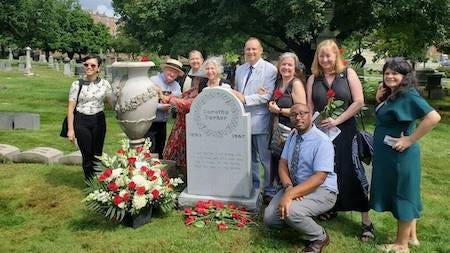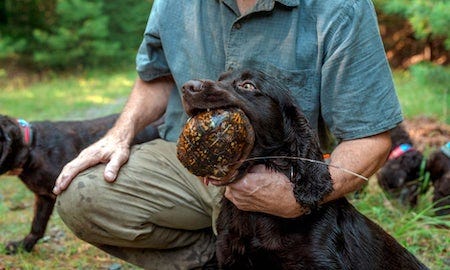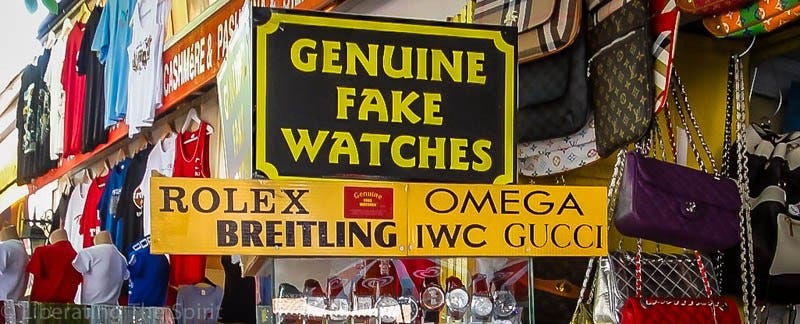The Weird Times: Issue 68, August 29, 2021 (V2 #16)

“Today, money is the dominant measure of social achievement no matter where it comes from or how it is obtained. It's not about need; it's about winning. To compete in this race -- for zeroes, in bank accounts -- elites in countries rich and poor are rewriting the rules in their favor. They are rigging the system. That is what ordinary people mean by "corruption." And it is the existential threat facing our generation.”—Sarah Chayes
“You have to be faithful to your subconscious, unconscious, super-conscious — as well as to your conscious. Integrity is a facet of honesty. It has to do with knowing yourself.”—Bob Dylan
Famed San Francisco poet and activist Jack Hirschman dies, Amanda Bartlett, SFGate, 8/22/21
Jack Hirschman, former San Francisco poet laureate, activist, and famed proponent of the Beat Generation, died at his home in the city on Sunday ... He was 87 years old.
“there's a stillness whose volume speaks
worlds of words defiant of measure” —Jack Hirschman
Don Everly, of harmonizing rock ’n’ roll pioneers the Everly Brothers, dies at 84, RJ Smith, LA Times, 8/21/21
“Harmony is the ultimate love.” —Phil Everly
The Rolling Stones’ Charlie Watts Dies at 80: The drummer performed with the band since 1963, Matthew Strauss, Pitchfork, 8/24/21
Watts drummed in local jazz bands in the late 1950s before he joined Alexis Korner’s band Blues Incorporated in 1961. One night in 1962, so the story goes, Mick Jagger and Keith Richards went to a club in Ealing, West London, where Blues Incorporated were performing. Jagger and Richards left the show impressed with Watts and his bandmates Brian Jones and Ian Stewart, who also made their way into the Rolling Stones. “Paint it Black”
Good News
Evidence that ageing yields improvements as well as declines across attention and executive functions, John Verssimo, Paul Verhaeghen, Noreen Goldman, Maxine Weinstein & Michael T. Ullman, Nature, 8/19/21
“Linear and nonlinear analyses revealed that whereas the efficiency of the alerting network decreased with age, orienting and executive inhibitory efficiency increased, at least until the mid-to-late 70s. Sensitivity analyses indicated that the patterns were robust. The results suggest variability in age-related changes across attention/executive functions, with some declining while others improve.”
How the Cuttlefish’s Robust Memory System Defies Old Age: This cephalopod is the only known animal that doesn’t exhibit age-related deterioration when recalling specific events, Jennifer Ouellette, Wired, 8/23/21
“Cuttlefish can remember what they ate, where, and when, and use this to guide their feeding decisions in the future," said coauthor Alexandra Schnell of the University of Cambridge, who conducted the experiments at the Marine Biological Laboratory in Woods Hole, Massachusetts. "What’s surprising is that they don’t lose this ability with age, despite showing other signs of aging like loss of muscle function and appetite."
Yes, Technology Can Capture Carbon Dioxide from the Air with 97% Efficiency: But there's a catch, of course, Loukia Papadopoulos, Interesting Engineering, 8/21/21
"The technologies for CO2 capture are merely complementary to an overall decarbonization strategy – that is, for the reduction of CO2 emissions – and cannot replace it…"”
Researchers rediscover coffee plant that could thrive in a warmer world:The species was once commonly grown in West Africa, YCC Team, Yale Climate Connections, 8/23/21
“The aroma and the fragrance of the coffee was wonderful,” he says. “It actually tasted like Arabica coffee.”
“But it can grow in temperatures up to 12 degrees warmer. So with cultivation and breeding, stenophylla could give coffee farmers a more climate-resilient crop.”
A Plan to Slow the Creep of the Sahara—by Planting Gardens: People along the desert’s border are building a kind of circular plot called a tolou keur to keep the soil fertile and to slow desertification, Jessica Leigh Hester, Wired, 8/21/21
“The garden is the latest iteration of the project known as the Great Green Wall, first envisioned as a viridescent belt squiggling thousands of miles across the Sahel region, from Senegal to Djibouti. Launched in 2007 by the African Union with backing from the European Union, the World Bank, and the United Nations, the project was initially meant to help stave off desertification by stymying the Sahara as it wandered south.”
Solar Power Booms in Georgia, Where It Isn’t Mandated: The state has no subsidies or renewable-energy requirements, but solar farms draw support of Republican utility regulators, rural communities, Elena Shao, Wall Street Journal, 8/22/21
“Georgia has no mandates requiring power companies to add renewable energy and hasn’t made climate change a political priority. Solar power is booming there anyway.”
Is This Giant Greenhouse in Kentucky the Future of Farming? Inside AppHarvest's quest to be the world's biggest ag-tech company, save the Appalachian economy, and ensure the global food supply, Austyn Gaffney, Rolling Stone, 8/22/21
“I’m a huge believer that nature is the most technologically advanced thing we have on Planet Earth, and we need to harness it,” the 36-year-old founder and CEO of AppHarvest.
The rise of 3D-printed houses: Your next home could be a printout, The Economist, 8/18/21
“while it can take weeks to put up a conventional bricks-and-mortar dwelling, Palari Homes and Mighty Buildings, the collaborators behind these houses, are able to erect one in less than 24 hours. They can do it so rapidly because their products are assembled from components prefabricated in a factory. This is not, in itself, a new idea. But the components involved are made in an unusual way: they are printed.”
Afterlives: the incredible stories behind recovered Nazi-looted art: In a new exhibition, the difficult process of protecting art throughout and after the second world war is examined and celebrated, Jordan Hoffman, The Guardian, 8/23/21
Rarely does one walk away from a gallery with a spinning head, thinking of the life led by the paintings, drawings and objects themselves.
Yet that is what’s so remarkable about Afterlives: Recovering the Lost Stories of Looted Art, a new show at the Jewish Museum in New York City.
Fill 'er up: New local businesses offer bulk products to push plastics aside, Bryan McKenzie, Daily Progress, 8/22/21
“From shopping bags to utensils, all use-once-and-throw-away plastic items are being cut back or cut out completely at UVa, including plastic water bottles and plastic trash bag liners.”
Can This Sun-Reflecting Fabric Help Fight Climate Change? An experimental textile called metafabric is designed to cool down the wearer and reduce the need for air-conditioning, Jess Craig, Wired, 8/23/21
“Metafabric is the latest development in a broader emerging field of textiles for personal heat management, clothing that can heat or cool the wearer. Researchers hope that these textiles will not only enhance personal comfort, but reduce injury and death from extreme heat. They might even help slow climate change by reducing the need for air-conditioning and heating, which accounts for about 10 percent of global electricity consumption.”
Meet the Black Women Driving New Ag Policy: A new generation of elected officials is working to benefit disadvantaged farmers and African Americans in their states by serving on agriculture committees, introducing legislation to promote equity in agriculture, and fighting food insecurity, Nadra Nittle, Civil Eats, 8/24/21
“For many of us who are descended of enslaved Africans, there is a deep connection to our ancestors and the work that they were forced to do—and also the work they did really, really well,” said Jackson. “That connection matters to me.”
11,000-year-old solution to modern problem: Ancient potato could thrive in changing climate:Indigenous communities of the Southwest work to ‘rematriate’ the Four Corners Potato, ALASTAIR LEE BITSÓÍ, Yale Climate Connections, 8/27/21
A New Chip Cluster Will Make Massive AI Models Possible: Cerebras says its technology can run a neural network with 120 trillion connections—a hundred times what's achievable today, Will Knight, Wired, 8/24/21
This Barnacle-Inspired Glue Seals Bleeding Organs in Seconds: The paste sticks onto wet tissue firmly by repelling blood. Surgeons hope it can save time—and lives,Max Levy, Wired, 8/24/21
The six ‘superdogs’ who save turtles: ‘It’s all powered by love’ John Rucker and his dogs battle extreme weather, snakes and tough terrain to track turtles as their habitat is increasingly under threat, Debbie Weingarten, The Guardian, 8/24/21
Radioactive Rat Snakes Could Help Monitor Fukushima Fallout: Scientists have attached dosimeters to the reptiles so they can serve as living “bioindicators” to gauge contamination levels near the shuttered nuclear power plant, Susan D’Agostino, Wired, 8/28/21
Stanford machine learning algorithm predicts biological structures more accurately than ever before: Stanford researchers develop machine learning methods that accurately predict the 3D shapes of drug targets and other important biological molecules, even when only limited data is available, Isabel Swafford, Stanford News, 8/26/21
These 3 energy storage technologies can help solve the challenge of moving to 100% renewable electricity, Kerry Rippy, The Conversation, 8/26/21
‘It’s a miracle crop’: the pioneers pushing the powers of seaweed: Kelp can clean New York’s polluted waters, tackle climate change and is sustainable – but growers need a law change first, Alexander Talty, The Guardian, 8/26/21
Flexible Microprocessor Could Enable an 'Internet of Everything' Researchers have developed a microprocessor built on high-performance plastic rather than silicon—and they say it could enable smarter food labels and supply chain management, Christopher Intagliata, Scientific American, 8/24/21
The Great Divide
work with mind and fingers
or hands and arms and feet
something about the past lingers
as we aim the future's drumming beat
—David Wilk
Not so Good News
Something is wrong with Canada’s iconic loon: Birds Canada releases 40-year survey showing mysterious declines in the number of common loon chicks surviving to adulthood, Bruce Head, Kawartha Now, 8/27/21
Book excerpt: Our chemical world and chronic illness: Chemistry is necessary for all life—but we've unleashed an unprecedented synthetic chemical cocktail onto our economies, communities, and ecosystems, Joanna Malaczynski-Moore, Environmental Health News, 8/24/21
“In approximately 80 years' time (roughly since the rise of the chemical industry in World War II), we have introduced more than 100,000 synthetic chemicals en masse into our lives. Trillions of pounds of synthetic chemicals are put into commerce annually and can be found in personal care items, cleaning products, clothes, food, water and the built environment.
We have been exposed to some of these chemicals only in the last few decades. Others went out of popular circulation well over 40 years ago but are still found in, and affect, every living being on the planet.” From Silent Winter by Joanna Malaczynski.
Progressives and the Afghanistan Debacle, Robert Kuttner, American Prospect, 8/27/21
“Just as the right should not be allowed to conflate the bungled pullout with the issue of whether the U.S. should have stayed in Afghanistan at all once the Taliban was routed in 2002, the left should not play the same game in reverse. The exact terms of withdrawal and evacuation should have been negotiated while the U.S. had a lot more bargaining leverage.”
What Was the Fascism Debate? The clash over whether the Trump era represented the rebirth of fascism represents a disagreement about the role of language and history in shaping contemporary political agendas, Udi Greenberg, Dissent, Summer, 2021
“But if there is a lesson to be drawn from the last elections, it may be that correctly naming our most radical opponents is not the key to political triumph.”
THE WELL FIXER’S WARNING: The lesson that California never learns, Mark Arax, The Atlantic, 8/17/21
“I’m 62 years old. I’ve been doing this more than half my life, and I’ve never seen this. Not even close,” he said. “This is all brand new, and it’s shaken everything I believe in.”
The Supreme Court’s stunning, radical immigration decision, explained: The Court’s decision on Trump’s “Remain in Mexico” policy upends decades of precedent warning that judges shouldn’t mess with foreign affairs, Ian Millhiser, Vox, 8/24/21
Here’s what makes a new Amazon carbon study so unnerving: Earth’s carbon sinks are racing to keep up with a global firehose of greenhouse gas emissions, Bob Henson, Yale Climate Connections, 8/26/21
Global Shipping Snarls Look to Linger Well Into Next Year, Cindy Wang, Enda Curran, Bloomberg News, 8/26/21
Reading and Listening
My latest Writerscast interview is with the extraordinary Susan Paola Antonetta about her remarkable memoir The Terrible Unlikelihood of Our Being Here. I recommend both reading the book and listening to the interview.
Thanks to Mark Hurst of Creative Good for this quote by Google founders Larry Page and Sergey Brin, that appeared in an academic paper they published in 1998 called “The Anatomy of a Large-Scale Hypertextual Web Search Engine.”
“Advertising funded search engines will be inherently biased towards the advertisers and away from the needs of the consumers. . . . advertising income often provides an incentive to provide poor quality search results.”
I remember when Google was a valuable tool. It’s unusable now. I rely on DuckDuckGo instead. Better privacy, no ads.
Alison Bechdel and Cheryl Strayed in Conversation, The Believer, 8/25/21
“Earlier this summer, Alison Bechdel and Cheryl Strayed got together for Virtual Wordplay, an event presented by St. Catherine University and Star Tribune as part of West by Midwest. The event was also presented in partnership with Literary Arts, the Loft, Black Mountain Institute, and Wisconsin Book Festival.”
AB: What I love about memoir is that puzzle of trying to find a story in the randomness of our lives.
CS: Each generation has to remember that they didn’t invent that outside the box or newer, radical way of thinking.
Wayne Koestenbaum Would Like to Thank Dreams and Nouns: Some Advice for the Graduating Class of Bennington College (and the Rest of Us), Wayne Koestenbaum, LitHub, 8/26/21
“The more seltzer I drink, the more I will resemble a poem in which a perfect adequation obtains between emotion and language. This attachment to seltzer—this conviction that carbonated water corrects a possible asymmetry between form and content in a poem or in a life—arose only recently, and in response to re-seeing Fellini’s La Strada.”
The Algorithm: The media's new business model is propaganda, Leighton Woodhouse, Kerfuffle, 7/27/21
“News outlets, in other words, are selling themselves to partisan audiences as the producers and propagators of the political narratives those audiences favor.”
The Brain Doesn’t Think the Way You Think It Does: Familiar categories of mental functions such as perception, memory and attention reflect our experience of ourselves, but they are misleading about how the brain works. More revealing approaches are emerging, Jordana Cepelewicz, Quanta Magazine, 8/24/21
Inspirations
Bearing Witness: Why I Biked Around the Country to Humanize Climate Change: Devi Lockwood on the Power of Deep Listening to Inspire Climate Solutions, Lithub, 8/24/21
“In August 2013, I rode my bicycle 800 miles down the Mississippi River Trail from Memphis, Tennessee, to Venice, Louisiana, where the river meets the Gulf of Mexico. I traveled with an Olympus LS-14 digital voice recorder, my bicycle, and enough peanut butter and tortillas to make emergency meals for days. Along the way I collected stories from the people I met.”
Look upward. Neither firm nor free,
Purposeless matter hovers in the dark.
—Thom Gunn (born 8/29/29), from “The Annihilation of Nothing”
UGA professor resigns mid-class after student refuses to wear mask, Dania Kalagi, The Red & Black, 8/27/21
Abolitionist Library Workers Want Library Access for All. That Begins with Getting Cops Out: Library staff work to remove the need for police officers within libraries and focus on de-escalating training, Jason Christian, In These Times, 8/23/21
How to fight microplastic pollution with magnets: Huge amounts of plastic ends up rivers and oceans every year, harming the environment and potentially also human health. But what if we could pull it out of water with the power of magnets? Isabel Gerretsen, BBC, 8/25/21
The Bee Love Project is an initiative to bring people together to understand the role of bees in our environment: We would like to remind you how important honeybees are in the world. Our mission is to encourage actions in favor of honey bee survival and protection.
Agriculture Reporter Sarah Mock Is Challenging the Narrative About Small Family Farms:The self-confessed ag policy wonk argues that today’s small farm isn’t a working model and is drafting a blueprint for a more sustainable system she calls ‘Big Team Farm,’ Lynne Curry, Civil Eats, 8/19/21
Really Good News
Texas A&M Researcher: New Drug Could Be ‘Game Changer’ Against COVID-19: A discovery by Wenshe Ray Liu and his team leads to an agreement with a California biopharmaceutical company, Keith Randall, Texas A&M Today, 8/25/21
“A drug created by a Texas A&M University professor could be the most effective treatment yet of patients with COVID-19, including the aggressive variants of the virus such as Delta and others. The drug compound, called MPI8, has stopped the replication of the virus in laboratory tests.”

Dorothy Parker once said her tombstone should read“Wherever she went, including here, it was against her better judgment.” For complicated reasons, she never actually had a tombstone until recently. With financing from a variety of sources, including the Al Hirschfeld Foundation and the New York Distilling Company, which makes Dorothy Parker gin, she finally has been entombed in Woodlawn Cemetery.
This whole world reminds me of my dog
My dog reminds me of this whole world
—Jane Siberry, from “Everything Reminds Me of My Dog”
What a week it has been. The weird times continue. I hope this finds you all well. Write when you can. Send news, send poems and songs that move you. Stay safe!





